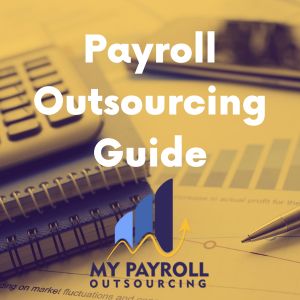
Avoid Costly Mistakes: The Value of Professional Payroll Outsourcing
In any business, managing payroll is one of the most important yet complex tasks. Payroll involves far more than just calculating employee wages—there are tax regulations to comply with, deductions to manage, and legal requirements that must be followed precisely. As your business grows, these challenges multiply, increasing the risk of errors that could lead to costly penalties, employee dissatisfaction, and operational inefficiencies. This is where payroll outsourcing comes into play.
Outsourcing payroll to a professional service provider can help businesses avoid common payroll mistakes, ensuring compliance, reducing administrative overhead, and allowing companies to focus on their core activities. In this blog, we’ll explore the value of professional payroll outsourcing, the risks of handling payroll in-house, and how outsourcing can provide cost-effective solutions to avoid these common mistakes.
The Challenges of Managing Payroll In-House
Payroll is a critical function of any business, but managing it in-house can quickly become overwhelming, especially for small to medium-sized businesses that lack dedicated HR departments. Here are some of the key challenges businesses face when handling payroll internally:
Complex Tax Regulations
Payroll involves various tax regulations, including federal, state, and local taxes, as well as other employee withholdings, such as Social Security, Medicare, and unemployment insurance. Tax rates and laws frequently change, and keeping up with these changes is essential to avoid costly mistakes.
Misclassifying employees, failing to withhold the correct amount of taxes, or missing tax deadlines can lead to serious financial penalties. According to the IRS, nearly 40% of small businesses incur payroll-related fines, which can severely impact a company’s bottom line.
Time-Consuming Process
Handling payroll manually is time-consuming. For businesses with a growing workforce, this can require significant resources, often pulling key employees away from more strategic tasks. Whether it’s calculating wages, processing benefits, or preparing tax documents, the time spent on payroll management can become a burden for business owners and HR teams alike.
Risk of Errors
Even small errors in payroll can have significant consequences. Underpaying or overpaying employees can lead to dissatisfaction and even legal disputes. Incorrect tax filings can result in audits and fines from tax authorities. Human error is one of the most common causes of payroll mistakes, and businesses that rely on spreadsheets or manual calculations are particularly at risk.
Compliance with Labor Laws
In addition to tax regulations, businesses must comply with various labor laws, such as the Fair Labor Standards Act (FLSA), wage and hour laws, overtime rules, and other state-specific regulations. Failure to comply with these laws can lead to legal repercussions, including lawsuits and fines.
As the legal landscape evolves, businesses that manage payroll in-house must constantly stay informed of new regulations, adding further complexity to the process.

Common Payroll Mistakes and Their Consequences
The complexity of payroll management means that mistakes are not uncommon. However, even minor payroll errors can lead to major problems for businesses. Here are some of the most common payroll mistakes and the consequences they can have:
Misclassifying Employees
One of the most frequent payroll mistakes is misclassifying employees as independent contractors. The distinction between employees and contractors is critical because it determines how taxes are withheld and whether the business is responsible for paying employment taxes such as Social Security and Medicare.
Misclassification can lead to back taxes, penalties, and interest payments if the IRS determines that an employee should have been classified differently. Furthermore, employees may be entitled to additional benefits, such as overtime pay, that contractors are not, which can result in wage claims or lawsuits.
Incorrect Tax Withholding
Failing to withhold the correct amount of taxes from employee wages is another common mistake. This can occur when tax rates change, or when employees update their withholding information but the changes aren’t implemented correctly. Incorrect withholding can lead to underpayments or overpayments to the IRS, resulting in penalties and interest fees.
Missing Payroll Deadlines
Late or missed payroll deadlines can cause serious disruptions to a business. Not only can employees become dissatisfied or disengaged when their paychecks are delayed, but failing to meet tax deadlines can result in hefty fines from federal or state tax authorities.
Miscalculating Overtime
Miscalculating overtime is a common payroll error, especially in industries where employees work varying shifts or hours. Under the FLSA, non-exempt employees are entitled to overtime pay at 1.5 times their regular rate for hours worked over 40 in a workweek. Failing to calculate and pay overtime correctly can result in wage disputes and legal actions against the business.
Inadequate Record-Keeping
Payroll records must be kept accurately and for specific durations, depending on state and federal regulations. Inadequate record-keeping can lead to non-compliance with labor laws and tax authorities, potentially resulting in audits, fines, and lawsuits.

The Benefits of Outsourcing Payroll to a Professional Service
Given the complexity and risks associated with in-house payroll management, outsourcing payroll to a professional service provider offers a practical and cost-effective solution for many businesses. Here are the key benefits of outsourcing payroll:
Compliance with Tax and Labor Laws
One of the primary advantages of outsourcing payroll is ensuring compliance with tax and labor laws. Professional payroll service providers have teams of experts who specialize in staying up-to-date with the latest tax regulations and labor laws. This expertise helps businesses avoid costly mistakes related to tax filings, employee classifications, overtime calculations, and wage and hour laws.
By outsourcing payroll, businesses can reduce the risk of IRS penalties, wage claims, and lawsuits, while also ensuring that their payroll practices meet all applicable legal requirements.
Time and Cost Savings
Outsourcing payroll allows businesses to save valuable time and resources. Instead of dedicating hours each pay period to calculating wages, withholding taxes, and preparing tax documents, business owners and HR teams can focus on more strategic initiatives, such as growing the business or improving employee engagement.
For small and medium-sized businesses, the cost of outsourcing payroll is often much lower than hiring a full-time payroll administrator or team. Payroll providers charge a fixed monthly fee or a fee based on the number of employees, making it easy to budget for payroll services. By avoiding costly mistakes, businesses can also save on potential fines, legal fees, and lost productivity.
Reduced Risk of Errors
Professional payroll providers use advanced software and technology to automate payroll processes, reducing the risk of human error. Automation ensures that payroll calculations, tax withholdings, and benefits administration are handled accurately and consistently. In addition, payroll providers typically offer error-checking and audit support services to catch potential issues before they become costly problems.
By reducing the likelihood of errors, businesses can improve employee satisfaction, maintain accurate payroll records, and avoid the headaches of reprocessing incorrect payments or tax filings.
Access to Payroll Expertise
Outsourcing payroll provides businesses with access to specialized expertise that may not be available in-house. Payroll providers have dedicated teams of professionals who are well-versed in tax compliance, employee benefits, and payroll software systems. This expertise allows businesses to navigate complex payroll issues, such as multi-state payroll, garnishments, and deductions, with ease.
Having access to payroll experts also means that businesses can get answers to their questions quickly, ensuring that any issues are resolved promptly and efficiently.

Enhanced Data Security
Payroll data is highly sensitive, containing personal and financial information about employees. Mishandling this data can lead to security breaches, identity theft, and compliance violations. Professional payroll providers invest in advanced security measures, such as encryption, secure servers, and multi-factor authentication, to protect payroll data from unauthorized access or cyberattacks.
Outsourcing payroll reduces the risk of internal fraud or data breaches that can occur when payroll is managed in-house. Payroll providers also maintain secure backups of payroll data, ensuring that businesses have access to their records in case of an audit or emergency.
Seamless Integration with HR and Accounting Systems
Many payroll providers offer software solutions that integrate seamlessly with a business’s existing HR and accounting systems. This integration simplifies the flow of information between departments, ensuring that payroll data is consistent across the organization.
For example, time and attendance data can be automatically synced with payroll systems, reducing the need for manual data entry and minimizing the risk of errors. Similarly, payroll expenses can be automatically recorded in accounting software, providing businesses with accurate financial reports and insights into labor costs.
How Payroll Outsourcing Improves Business Efficiency
Outsourcing payroll is not just about avoiding mistakes; it’s also about improving overall business efficiency. Here are a few ways in which payroll outsourcing can streamline operations and contribute to business growth:
Streamlined Payroll Processes
By automating payroll processes, outsourcing providers eliminate many of the manual tasks that consume time and resources. Payroll software can calculate wages, deduct taxes, process direct deposits, and generate pay stubs automatically, all while ensuring accuracy and compliance. This reduces the administrative burden on HR teams and improves the speed of payroll processing.
Improved Employee Experience
Employees rely on accurate and timely payments to manage their personal finances. Payroll outsourcing ensures that employees are paid correctly and on time, every pay period. In addition, many payroll providers offer employee self-service portals, where workers can view their pay stubs, update their tax information, and access benefits. This improves transparency and reduces the need for employees to contact HR for payroll-related inquiries.
A positive payroll experience can increase employee satisfaction and trust in the organization, contributing to a more motivated and engaged workforce.
Focus on Core Business Activities
When payroll is outsourced to a professional service provider, business owners and managers can focus on what they do best: running their business. Rather than spending time on administrative tasks, they can devote their energy to growing the company, improving customer service, and developing new products or services.
Outsourcing payroll allows businesses to operate more efficiently, freeing up time and resources to invest in growth and innovation.

Choosing the Right Payroll Outsourcing Provider
While the benefits of outsourcing payroll are clear, choosing the right provider is essential to ensuring a successful partnership. Here are some key factors to consider when selecting a payroll service provider:
- Experience and Reputation: Look for a provider with a strong track record in the payroll industry. Check client reviews and testimonials to gauge the provider’s reliability and customer service.
- Compliance Expertise: Ensure that the provider has experience with compliance issues relevant to your industry and location, such as tax laws, labor regulations, and employee benefits.
- Technology and Security: Verify that the provider uses secure payroll software and follows best practices for data security and encryption.
- Customer Support: Choose a provider that offers responsive customer support, including help with payroll questions, compliance issues, and software troubleshooting.
Managing payroll in-house can be time-consuming, complex, and prone to costly mistakes. By outsourcing payroll to a professional service provider, businesses can reduce the risk of errors, ensure compliance with tax and labor laws, and improve overall efficiency. The cost savings, access to expertise, and increased security offered by payroll outsourcing make it a valuable solution for businesses of all sizes.

